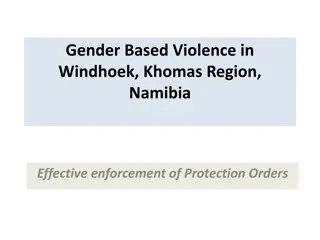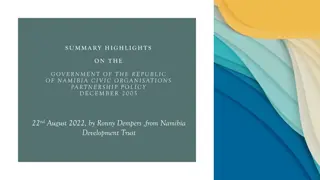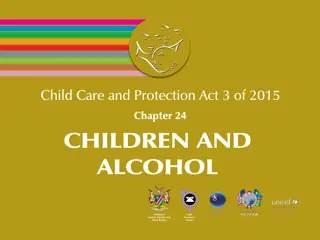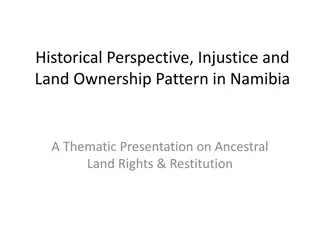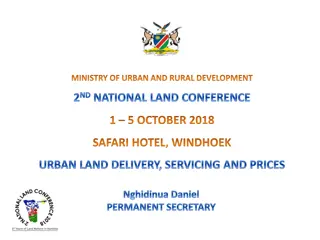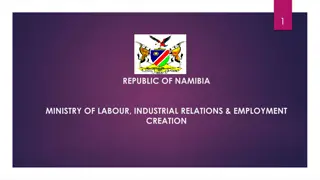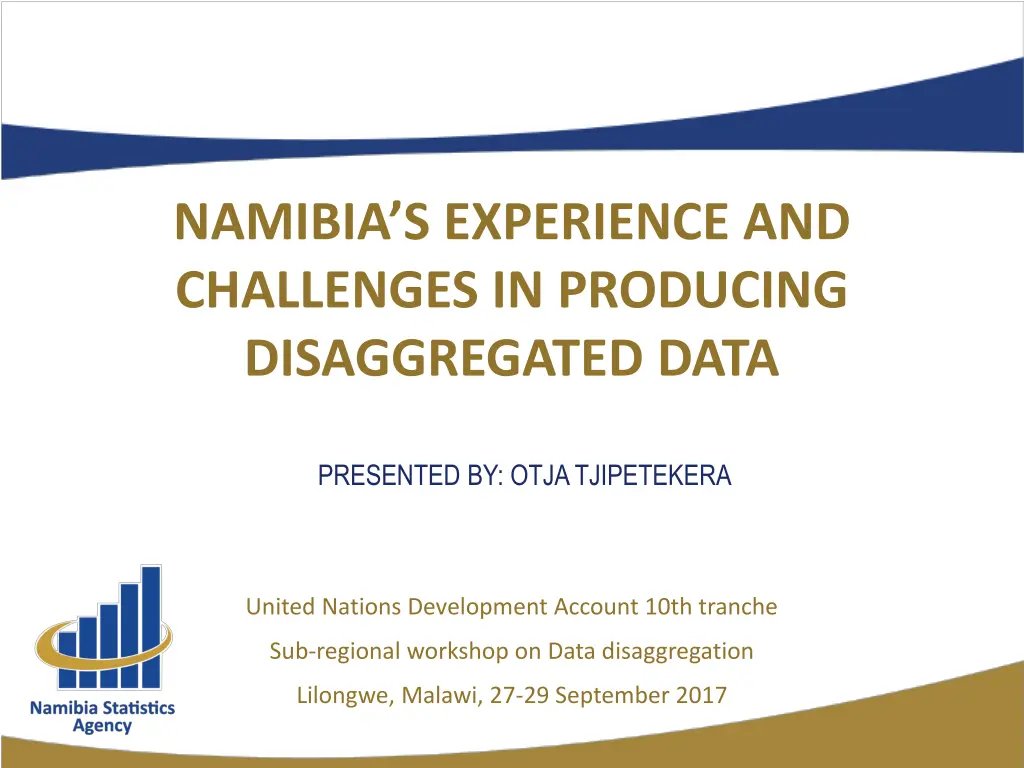
Namibia's Experience in Producing Disaggregated Data: Challenges & Solutions
Explore Namibia's challenges and achievements in producing disaggregated data as presented at the United Nations workshop in Malawi. Learn about the Namibia Statistics Agency, benefits of data disaggregation, sources of data, and existing challenges.
Download Presentation

Please find below an Image/Link to download the presentation.
The content on the website is provided AS IS for your information and personal use only. It may not be sold, licensed, or shared on other websites without obtaining consent from the author. If you encounter any issues during the download, it is possible that the publisher has removed the file from their server.
You are allowed to download the files provided on this website for personal or commercial use, subject to the condition that they are used lawfully. All files are the property of their respective owners.
The content on the website is provided AS IS for your information and personal use only. It may not be sold, licensed, or shared on other websites without obtaining consent from the author.
E N D
Presentation Transcript
NAMIBIAS EXPERIENCE AND CHALLENGES IN PRODUCING DISAGGREGATED DATA PRESENTED BY: OTJA TJIPETEKERA United Nations Development Account 10th tranche Sub-regional workshop on Data disaggregation Lilongwe, Malawi, 27-29 September 2017
Outline Overview about NSA Benefits Sources of data Challenges
Overview about NSA The Namibia Statistics Agency (NSA) was established in 2011 as a state-owned enterprise by an Act of Parliament, Statistics Act, 2011 (No. 9 of 2011) as: the central statistical authority, and the coordinator of the National Statistical System among others. Stakeholders engagement - Line Ministries - State Owned Enterprises - Academia - NGOs Design of questionnaire The NSA is has moved fro PAPI to CAPI Dissemination: Statistics App, Websites, offices, Geo-portal
Benefits Good Institutional framework - According to Part II, section 2(g) of the Statistics Act 9 of 2011; Official statistics must be sensitive to distribution by gender, disability, region and similar socioeconomic features. - The Act also has make provision for establishment of the National Spatial Data Infrastructure, which helps to facilitate the capture of spatial data through cooperation between government bodies and other organs of state; NSS coordination - Civil registration, - Education, - National Accounts
Data Disaggregation and their Sources of data Main Data Disaggregation Age, Sex, Gender, Disability, Region (Geographic), Migration The sources of these data are mainly collected from - household surveys, like Namibia Population and Housing Census; Demographic and Health Surveys; Namibia Labour Force Surveys; Namibia Income and Expenditure Surveys; etc. - Administrative Statistics (Civil registration, Education) - GIS
Challenges Norepository system in Namibia yet No proper coordination of the NSS- Low manpower Administrative data- accessibility No race/ethnicity statistics produced in Namibia to meet the SDGs requirements Data available for Disability and migratory status but not much analysis are done Quality harmonization of concepts, structure, etc



